Beans are one of the most underrated foods, yet they are packed with powerful nutrients that can transform your health. From boosting heart function to balancing blood sugar levels, beans offer a wealth of benefits for both body and mind. Whether you are looking to improve digestion, manage your weight, or strengthen your immune system, these small but mighty legumes can help.
In this article, we will dive into the 12 healthiest varieties of beans and explore why they should be a regular part of your diet.
What Are Beans?
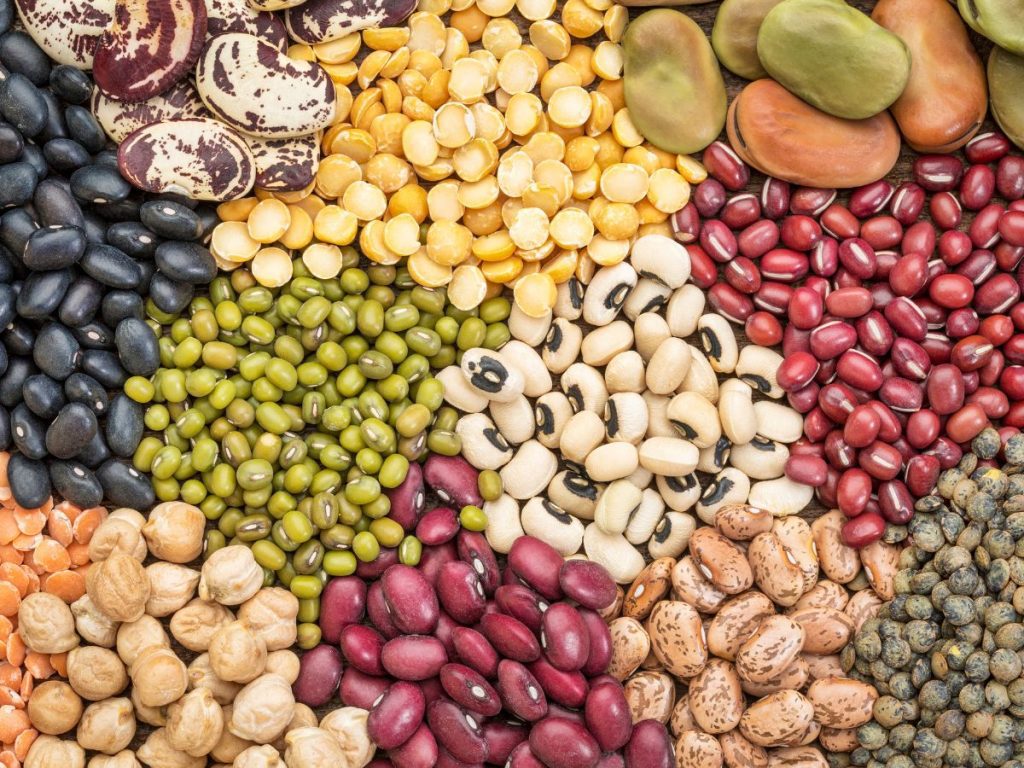
Beans, a type of legume from the Fabaceae family, have been cultivated for thousands of years. These edible seeds grow inside pods and people around the world consume them for their rich nutritional value.
Beans provide high amounts of protein, fiber, vitamins, and minerals, making them a staple in many diets, especially plant-based or vegetarian lifestyles.
With hundreds of varieties available, beans offer unique flavors and health benefits. Popular types include black beans, kidney beans, chickpeas, lentils, and pinto beans.
Their versatility makes them ideal for a wide range of dishes, from soups and stews to salads and snacks.
Additionally, beans are celebrated for their affordability, making them an accessible and nutritious choice for people everywhere.
In addition to being nutrient-dense, beans are environmentally sustainable, as they require less water and resources to grow compared to many animal-based food sources. They are a valuable crop for both health and sustainability.
Discover the Power of Beans: Nature’s Nutritional Giants
Now, let’s explore the 12 healthiest varieties of beans and uncover their incredible benefits:
1. Black Beans
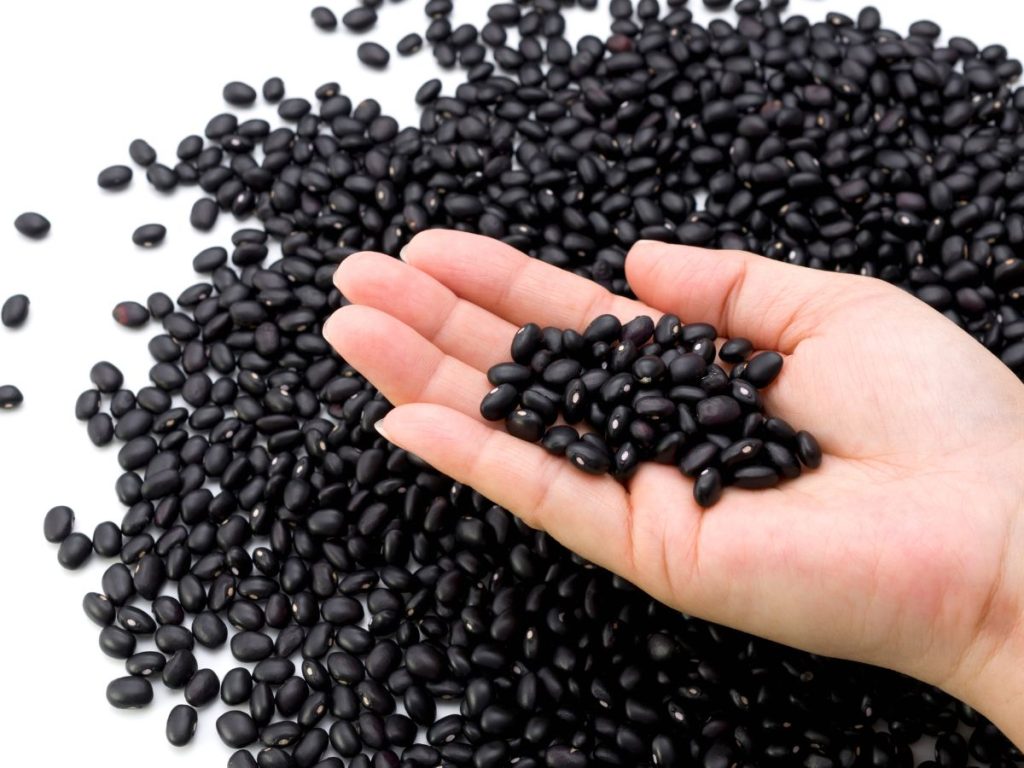
Black beans are rich in dietary fiber, particularly soluble fiber. This type of fiber forms a gel-like substance in the digestive tract, which slows the digestion and absorption of carbohydrates.
As a result, glucose is released into the bloodstream more gradually. This slow release helps stabilize blood sugar and prevent spikes often caused by high-carbohydrate meals.
For people with type 2 diabetes or those aiming to balance blood sugar, black beans are a highly beneficial addition to the diet.
Black beans also improve insulin sensitivity, helping the body use insulin more effectively. This increased sensitivity enables better glucose management, which is especially valuable for individuals with type 2 diabetes or prediabetes.
Studies show that eating black beans with rice can significantly lower blood sugar compared to rice alone, making them a smart food choice for glucose control.
The health benefits of black beans go beyond managing diabetes. Their fiber and nutrient content also support digestive health, heart health, and weight management.
Adding black beans to your meals offers long-lasting benefits for both metabolic health and overall well-being.
2. Chickpeas (Garbanzo Beans)
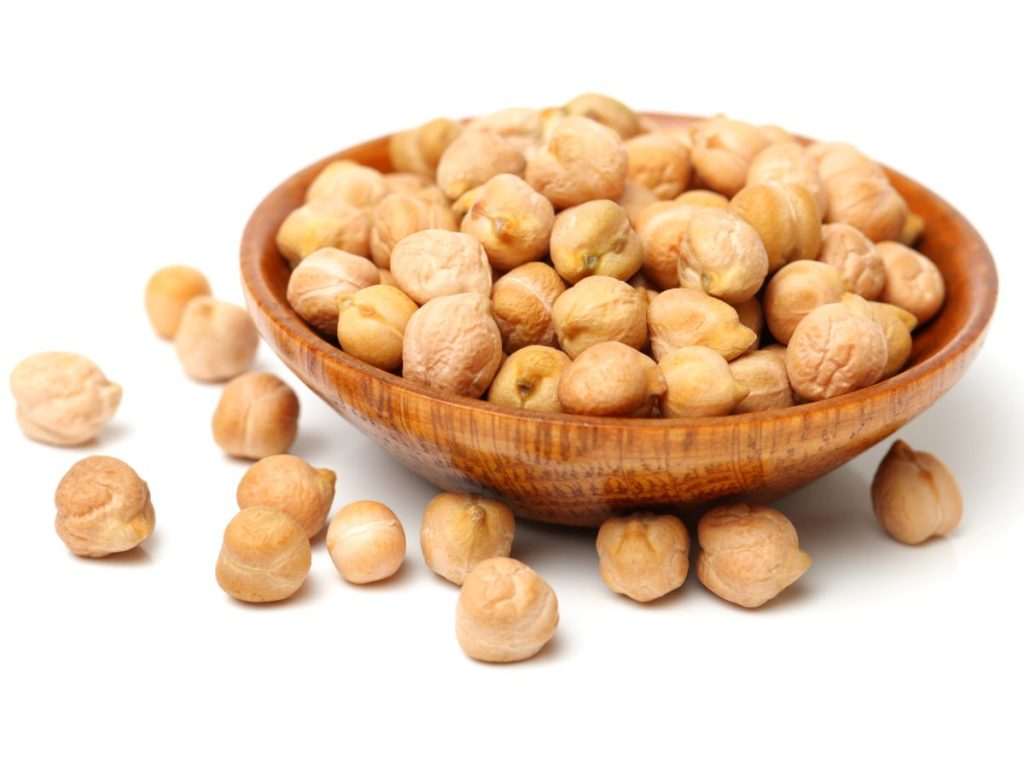
Chickpeas are a nutrient-dense powerhouse, rich in iron. Iron is essential for transporting oxygen throughout the body. It plays a key role in producing hemoglobin, the protein in red blood cells that carries oxygen from the lungs to tissues and organs.
Adequate iron levels boost energy production and help prevent iron-deficiency anemia, a condition that causes fatigue, weakness, and other health issues.
Including chickpeas in your diet can significantly increase iron intake, supporting overall vitality and stamina.
In addition to iron, chickpeas are packed with zinc. This essential mineral is vital for immune system function.
Zinc promotes the development of immune cells, helping the body fight infections and heal faster. It also supports cell growth and repair, ensuring the immune system remains strong and responsive.
Chickpeas are also rich in antioxidants, including coradin. These antioxidants combat oxidative stress, which is caused by an excess of free radicals that damage cells and lead to inflammation.
By neutralizing harmful molecules, chickpeas reduce inflammation and lower the risk of chronic diseases like heart disease and cancer.
Regular consumption of chickpeas supports long-term heart health and offers protection against degenerative diseases.
A study found that eating hummus, a dish made from chickpeas, could lower blood sugar levels by 5% compared to high-sugar snacks like granola bars.
This makes chickpeas a great option for stabilizing blood sugar and managing diabetes or pre-diabetes.
The health benefits of chickpeas include improved energy production, immune support, reduced inflammation, and better blood sugar control.
Chickpeas are a versatile and valuable addition to a healthy diet.
3. Lentils
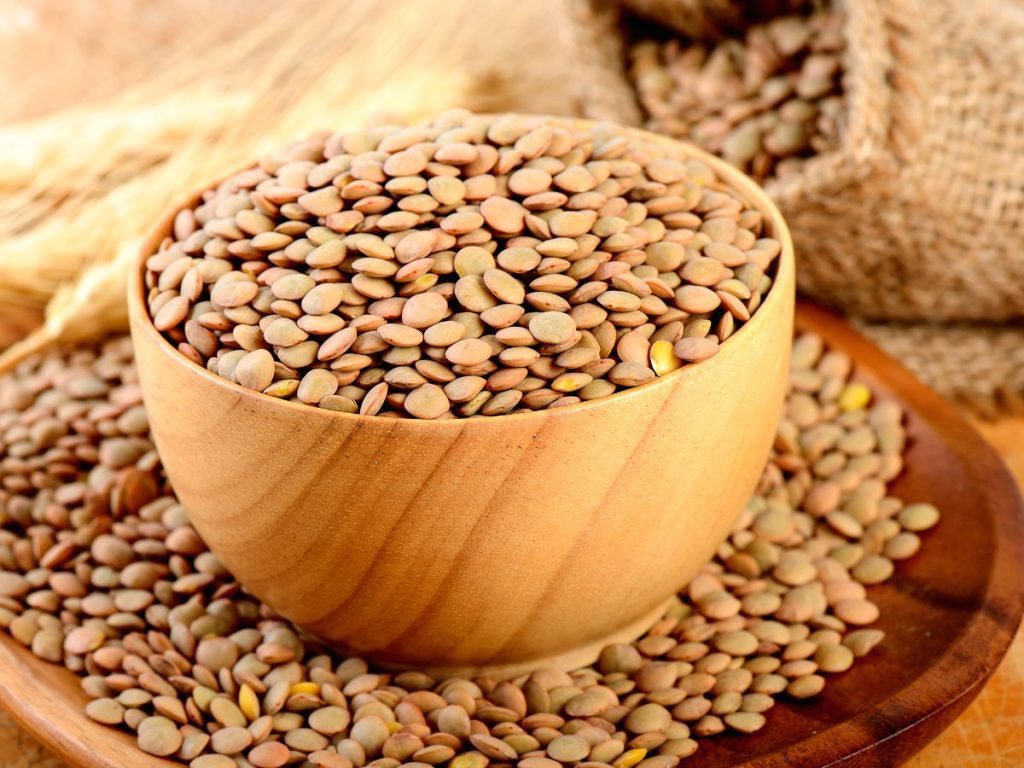
Lentils are a powerhouse of folate, a B vitamin especially important for pregnant women. Folate plays a key role in preventing neural tube defects, which are serious birth defects that affect the brain and spine in developing babies.
Proper folate intake during pregnancy is essential for the healthy development of the baby’s nervous system. This ensures that critical neural pathways form correctly.
For women of childbearing age, including folate-rich foods like lentils in their diet is vital for supporting fetal health.
Beyond pregnancy, folate is also essential for overall cellular function and DNA synthesis. This makes it important for everyone, not just expectant mothers.
Lentils are a versatile way to ensure adequate folate intake, promoting brain and nerve health.
Lentils not only provide folate but also help prevent diabetes. A large study involving over 3,000 participants found that individuals who regularly consumed lentils and other legumes had significantly lower rates of diabetes.
The high fiber and low glycemic index of lentils make them ideal for stabilizing blood sugar. This helps reduce the risk of type 2 diabetes and supports long-term metabolic health.
The health benefits of lentils range from prenatal care to diabetes prevention, making them a nutritional powerhouse that supports overall health and well-being.
4. Kidney Beans
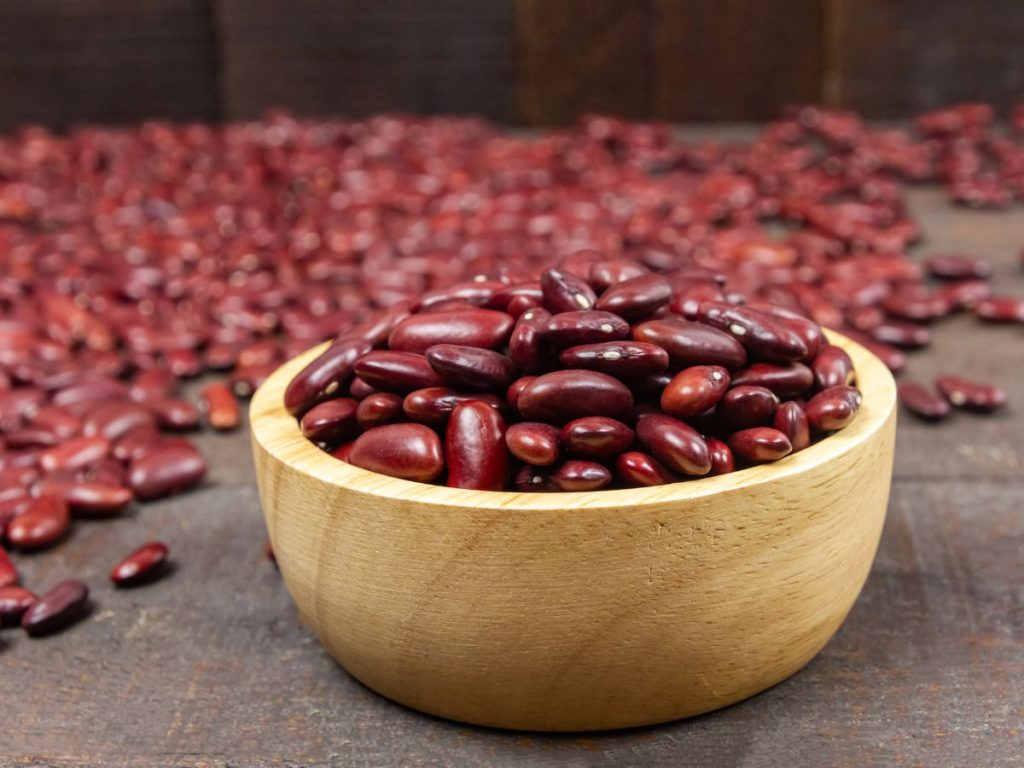
Kidney beans are packed with protein, making them essential for muscle repair and growth.
Protein is the building block of muscles and is crucial for those recovering from injuries, engaging in regular physical activity, or working to build muscle mass.
Kidney beans provide a plant-based source of high-quality protein, ensuring your muscles have the nutrients they need to repair and grow stronger.
In addition to supporting muscle health, kidney beans also aid in weight management. Their high protein and fiber content promotes a sense of fullness, reducing the likelihood of overeating and lowering overall calorie intake.
By keeping you satisfied for longer, kidney beans make it easier to maintain a balanced diet and manage your weight effectively.
Kidney beans are also rich in folate, a B-vitamin vital for DNA synthesis and cell growth.
Folate is particularly important for pregnant individuals as it supports the neurological development of the fetus. It helps prevent birth defects that affect the brain and spine, making adequate folate intake essential for a healthy pregnancy.
The health benefits of kidney beans range from muscle repair and weight management to supporting healthy fetal development. These benefits make kidney beans an essential part of a nutrient-rich diet.
5. Navy Beans
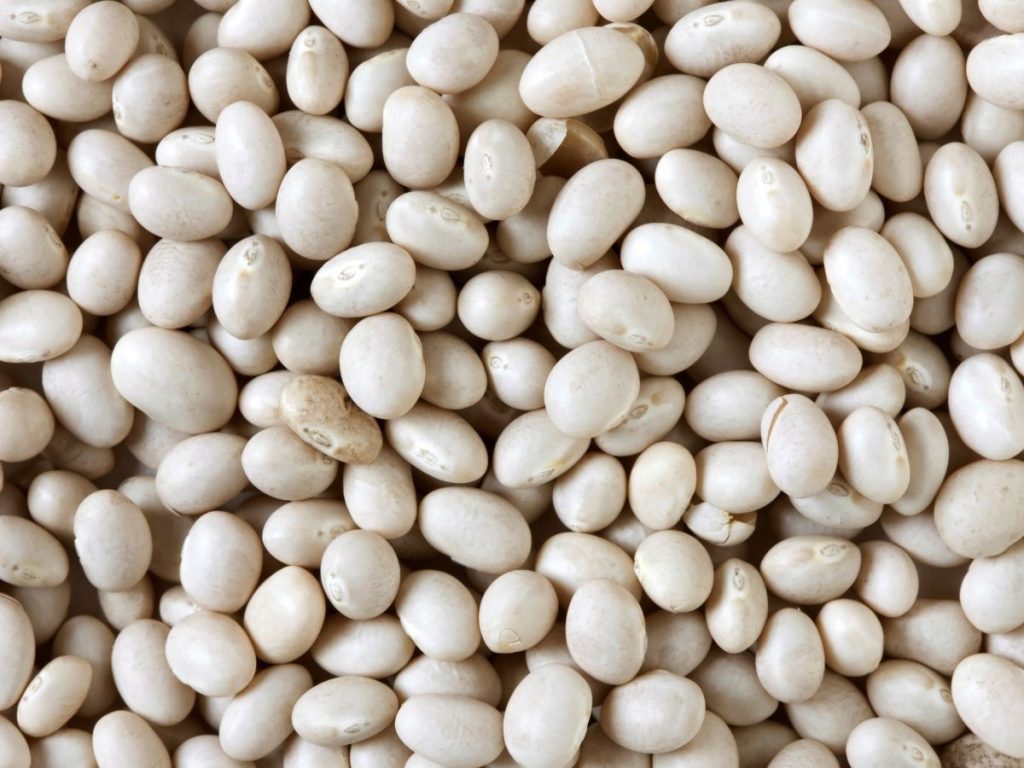
Navy beans are highly valued for their rich content of thiamine, also known as vitamin B1. This essential vitamin plays a key role in brain function by converting nutrients into usable energy.
This energy is crucial for the brain and nervous system, supporting mental clarity, focus, and overall cognitive health.
Regular intake of thiamine through foods like navy beans can enhance brain activity and reduce mental fatigue.
Navy beans also support energy production throughout the body. By converting carbohydrates into energy, they help sustain stamina.
This makes navy beans an excellent choice for anyone seeking a natural energy boost. Whether you’re looking to improve physical endurance or mental performance, navy beans provide the nutrition needed to stay energized throughout the day.
A 2015 study highlighted additional benefits of navy beans. Adults who consumed 5 cups weekly for 4 weeks saw a reduction in waist circumference and cholesterol levels.
This suggests that navy beans not only aid in weight management but also contribute to heart health by improving cholesterol levels.
With their impressive nutrient profile, the health benefits of navy beans extend to brain function, energy production, weight management, and heart health. They are a versatile addition to any balanced diet.
6. Pinto Beans
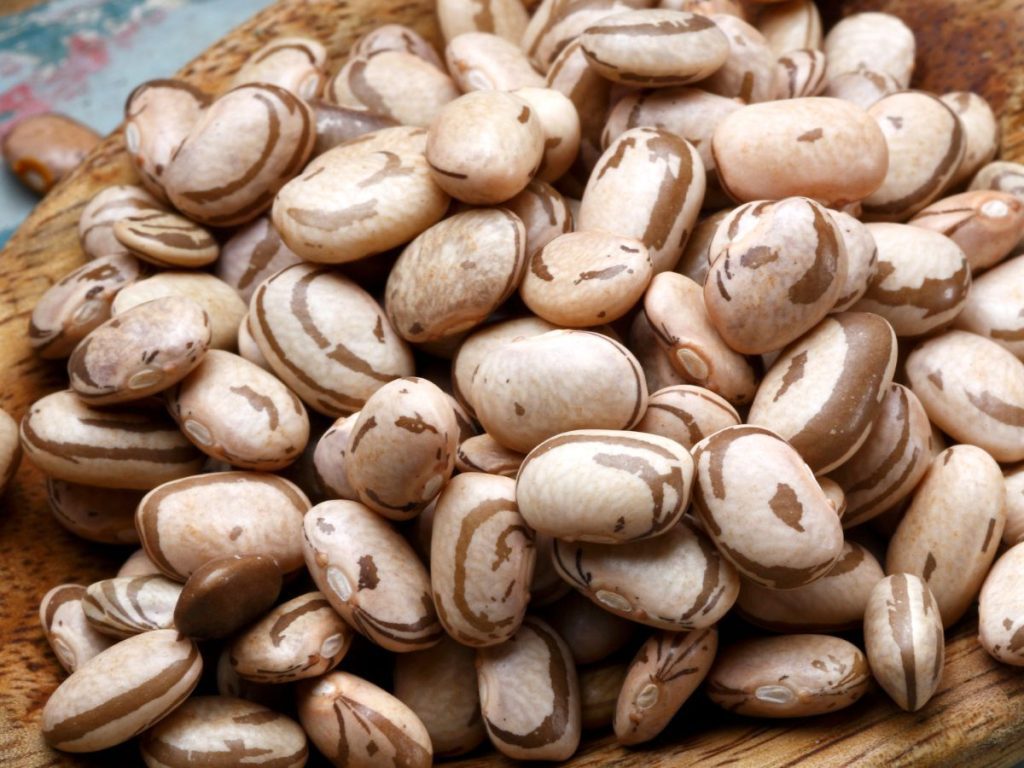
Pinto beans are an excellent source of potassium, a mineral that plays a key role in maintaining healthy blood pressure.
Potassium helps balance the effects of excess sodium in the body, which can raise blood pressure.
By aiding sodium regulation, pinto beans contribute to heart health and reduce the risk of hypertension and related complications.
In addition to potassium, pinto beans are rich in folate, a B-vitamin essential for DNA synthesis and cell growth.
Folate is particularly important during pregnancy as it helps prevent neural tube defects, which affect the brain and spine development of the fetus.
Adequate folate intake supports cellular health and development, making pinto beans valuable for expectant mothers.
Pinto beans also offer benefits for gut health. An animal study showed that these beans can increase beneficial gut bacteria, which play a significant role in digestion and immune function.
Additionally, pinto beans may help protect against insulin resistance, a key factor in managing blood sugar and preventing type 2 diabetes.
The health benefits of pinto beans make them a nutritious and versatile food that supports heart health, pregnancy, and digestive wellness.
7. Black-Eyed Peas
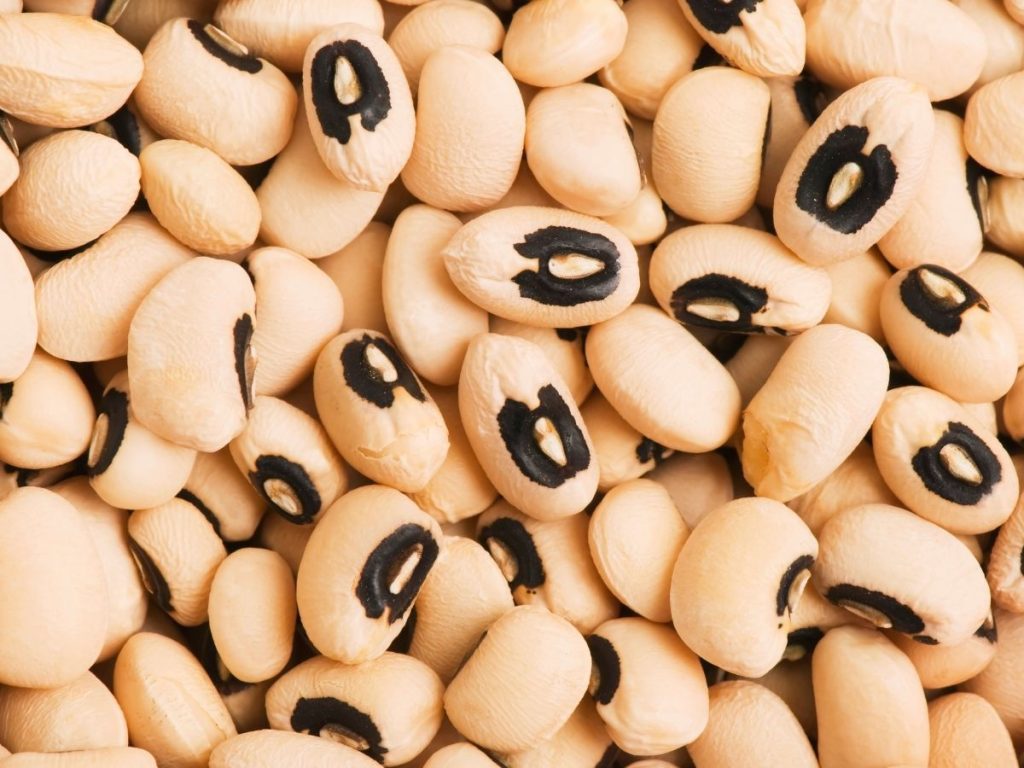
Black-eyed peas are an excellent source of calcium, a mineral that plays a critical role in maintaining strong bones and teeth.
Adequate calcium intake is essential for preventing bone-related conditions like osteoporosis, ensuring proper skeletal development, and keeping teeth healthy.
This makes black-eyed peas particularly beneficial for individuals looking to support their bone health.
Beyond bone strength, calcium is also crucial for muscle function. It aids in the contraction and relaxation of muscles, which is necessary for everyday movements, from walking to lifting.
Proper calcium levels ensure that muscles perform optimally, reducing the risk of cramps and muscle fatigue.
Including black-eyed peas in your diet can provide a natural boost to both bone and muscle health, making them a nutrient-dense addition to any meal plan.
The health benefits of black-eyed peas make them an ideal food for supporting a strong and active body.
8. Aduki Beans
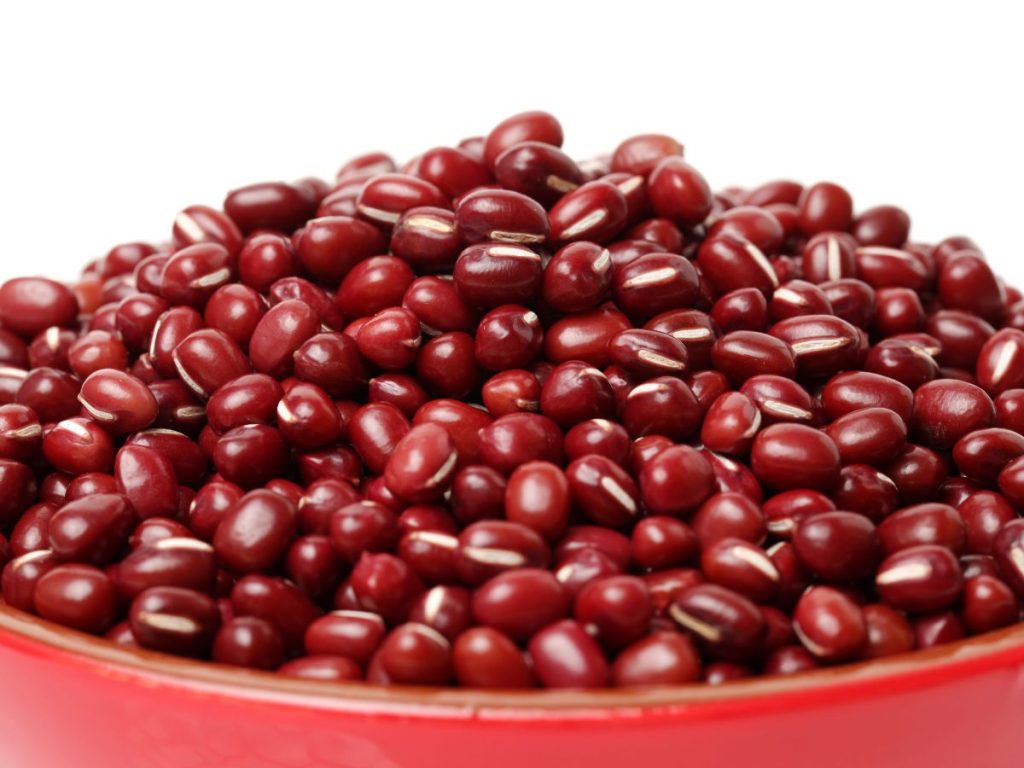
Aduki beans are packed with protein, making them a powerful choice for muscle repair and growth. This is particularly valuable for individuals following plant-based diets, as aduki beans provide essential amino acids that are often harder to find in non-animal foods.
These amino acids help rebuild and strengthen muscle fibers after physical activity, supporting recovery and growth.
In addition to muscle health, aduki beans contribute to the production of enzymes and hormones. These proteins play vital roles in regulating various bodily processes, from digestion to energy production.
The high protein content in aduki beans also supports immune function, ensuring the body remains strong and resilient.
For anyone looking to boost their protein intake, the health benefits of aduki beans make them an excellent option, especially for plant-based eaters focused on muscle recovery and overall well-being.
9. Soybeans
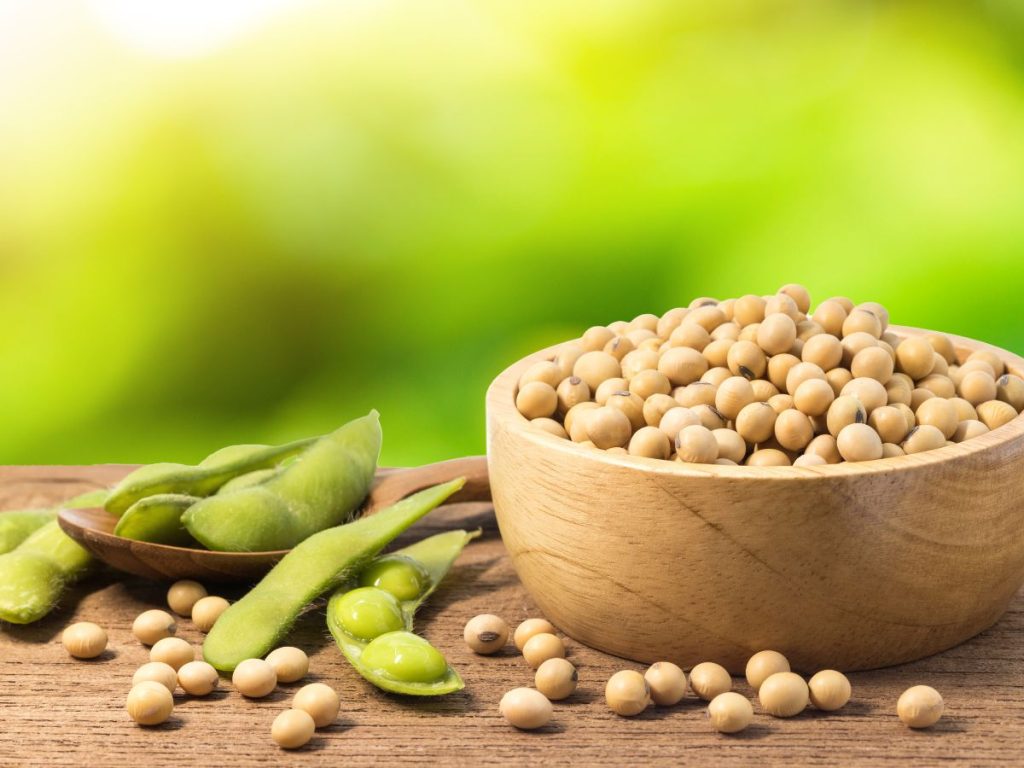
Soybeans are unique due to their high isoflavone content. Isoflavones are a type of phytoestrogen that mimics human estrogen but with much weaker effects. This makes soybeans beneficial for alleviating menopause symptoms, like hot flashes and night sweats.
Isoflavones bind to estrogen receptors and help balance the body’s estrogen levels, offering relief during menopause.
These isoflavones may also reduce the risk of breast and prostate cancer.
They work by binding to estrogen receptors and promoting cancer cell death. This action slows cancer progression and reduces the risk of malignant growth.
A large study showed that high soybean consumption lowered the risk of stomach and gastrointestinal cancers by 15%. This protective effect was particularly strong among females.
With their hormonal balance and cancer-preventive properties, soybeans support long-term health.
The health benefits of soybeans make them a nutritious choice for maintaining hormonal balance and reducing cancer risks.
10. Mung Beans
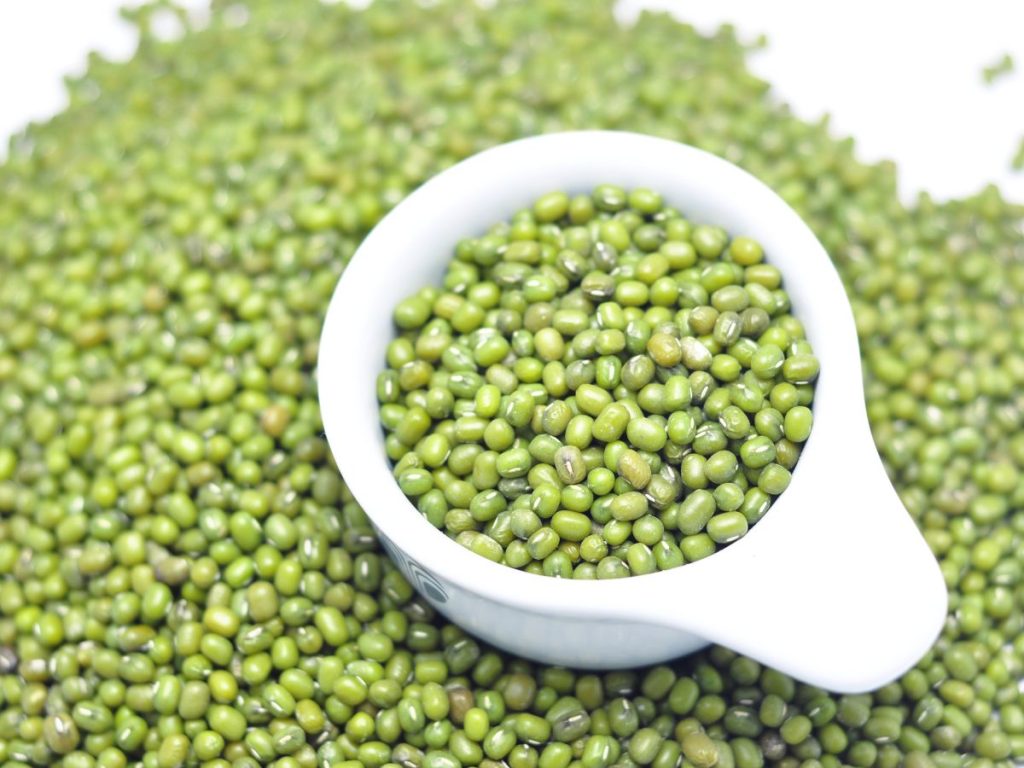
Mung beans are an excellent source of magnesium and potassium, two essential minerals that play a crucial role in regulating blood pressure.
Magnesium helps to relax blood vessels, reducing vascular resistance and, in turn, lowering blood pressure levels.
This relaxation of blood vessels contributes to overall cardiovascular health, improving circulation and reducing strain on the heart.
Potassium works in tandem with magnesium by balancing sodium levels in the body.
Too much sodium can lead to elevated blood pressure, and potassium helps counteract this by promoting sodium excretion through urine. This balance is key in maintaining optimal heart function, and it lowers the risk of hypertension-related complications.
Beyond regulating blood pressure, mung beans are also effective in lowering LDL cholesterol, often referred to as “bad” cholesterol.
By reducing LDL cholesterol levels, mung beans help prevent the buildup of plaque in the arteries, which can lead to heart disease, atherosclerosis, and strokes.
Their fiber content further supports healthy cholesterol levels and contributes to overall heart health.
The health benefits of mung beans make them an excellent choice for promoting heart health and reducing the risk of cardiovascular diseases.
11. Lima Beans
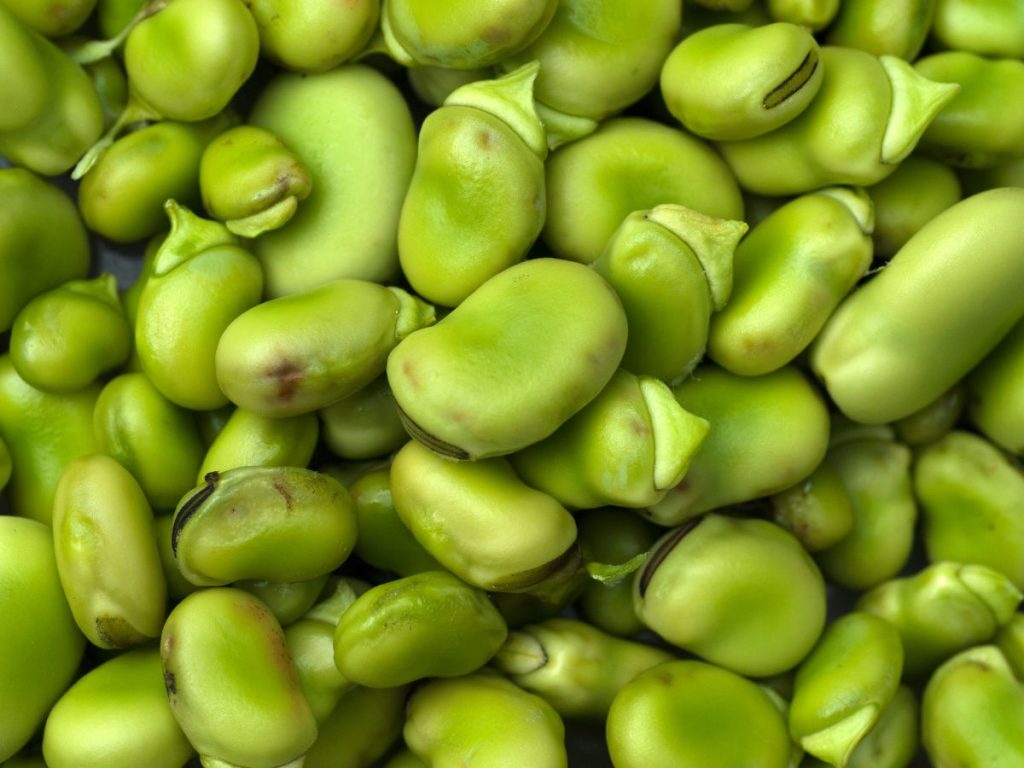
Lima beans are a rich source of molybdenum, a trace mineral crucial for processing and eliminating sulfites found in many processed foods.
For individuals sensitive to sulfites, eating lima beans can help reduce symptoms like headaches or rapid heartbeat. This makes them a valuable choice for maintaining overall wellness.
The detoxification process supported by molybdenum also aids the liver, helping the body handle these compounds more effectively.
In addition to their sulfite-cleansing properties, lima beans are packed with magnesium, a mineral essential for multiple bodily functions.
Magnesium plays a key role in nerve function, blood glucose regulation, and energy production. By helping to balance blood sugar, lima beans benefit individuals with diabetes or those at risk of metabolic disorders.
Magnesium also promotes muscle relaxation, supports heart health, and improves sleep quality, making lima beans a nutrient-dense food for overall well-being.
The health benefits of lima beans go beyond detoxification and metabolic support, making them a powerful addition to a balanced diet.
12. Great Northern Beans
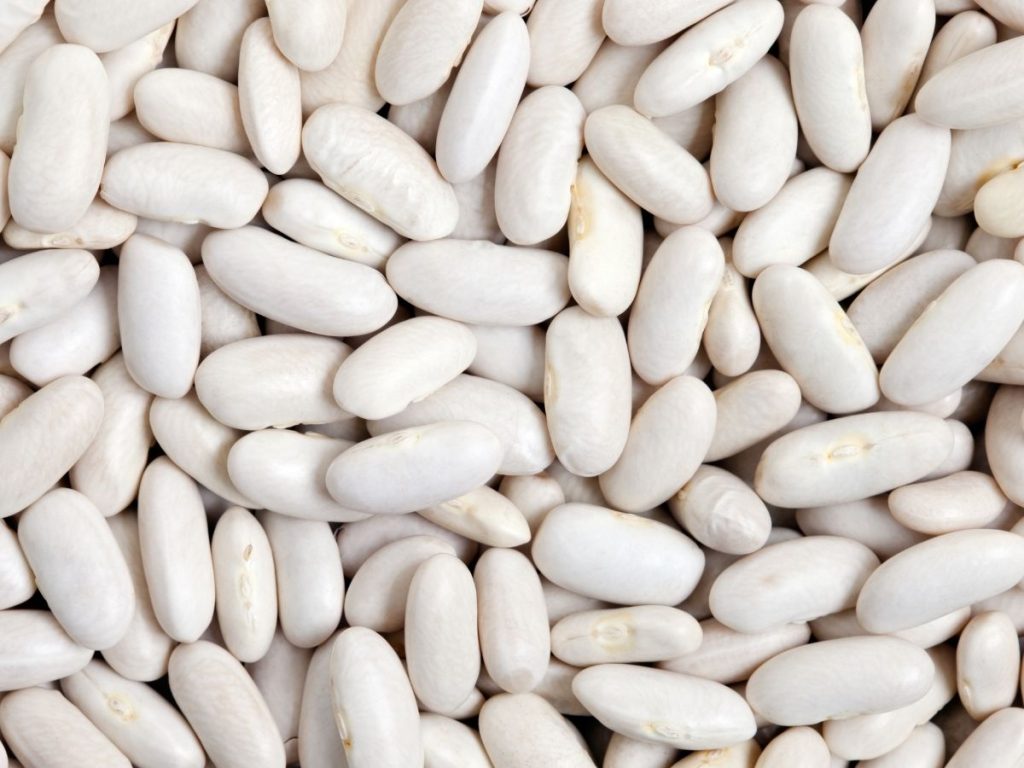
Great Northern beans have a low glycemic index, meaning they release glucose into the bloodstream more slowly. This gradual release helps maintain stable blood sugar levels.
As a result, these beans are particularly beneficial for individuals with diabetes or those at risk of blood sugar imbalances.
By avoiding sharp spikes and drops in glucose levels, they help improve energy, mood stability, and overall metabolic health.
In addition to their glycemic benefits, Great Northern beans are an excellent source of protein.
They offer a plant-based alternative to animal proteins, making them a valuable option for vegetarians, vegans, or those reducing meat consumption.
These beans are high in essential amino acids, which support muscle repair, immune function, and overall bodily strength.
Their protein content also promotes satiety, keeping you fuller for longer and aiding in weight management.
The combination of protein, fiber, and slow-digesting carbohydrates makes Great Northern beans an ideal food for sustained energy and balanced nutrition.
The health benefits of Great Northern beans make them a nutrient-rich choice for supporting metabolic health, muscle strength, and overall well-being.
How Many Beans Should You Eat Daily?
While beans are packed with nutrients, consuming them in moderation is essential. Overeating beans can cause digestive discomfort due to their high fiber content.
The recommended daily intake of mung beans is about 1 to 1 ½ cups of cooked beans.
Are Beans a Carbohydrate or Protein?
Beans are unique in that they offer a balanced mix of both carbohydrates and protein. While they are higher in carbohydrates, particularly complex carbs and fiber, they are also rich in plant-based protein. This combination makes beans a valuable food for sustained energy and muscle repair.
Are Beans Healthier Than Rice?
Beans are generally considered healthier than rice due to their higher protein, fiber, and nutrient content. While rice, especially white rice, is primarily a source of carbohydrates, beans offer a wider range of essential nutrients like vitamins, minerals, and antioxidants. Combining rice with beans, however, can create a balanced and nutritious meal.
What Are the Best Beans for Weight Loss?
For weight loss, beans like black beans, lentils, and chickpeas are ideal. These beans are high in fiber and protein, promoting fullness and reducing overall calorie intake. They also have a low glycemic index, which helps regulate blood sugar levels and supports long-term weight management.
Which Beans Are Best for Cooking?
Black beans, kidney beans, pinto beans, and chickpeas are some of the best beans for cooking due to their versatility and ability to hold their shape. They can be used in soups, stews, salads, and side dishes, making them a popular choice for a wide range of recipes.
Are Baked Beans Healthy?
Baked beans can be healthy, but it depends on how they are prepared. Canned baked beans often contain added sugars and sodium, which may reduce their health benefits. Opting for homemade baked beans or low-sugar versions can offer a more nutritious option, packed with fiber and protein.
Are Beans Good for Weight Loss?
Yes, beans are excellent for weight loss. Their high fiber and protein content help control hunger, promote fullness, and stabilize blood sugar levels, all of which support healthy weight management. Beans are also low in fat and calories, making them a nutrient-dense food choice for those looking to shed extra pounds.
What Beans Are Good for Cholesterol?
Beans like black beans, kidney beans, and navy beans are particularly good for lowering cholesterol. Their high soluble fiber content helps reduce LDL (bad) cholesterol levels, which contributes to heart health and lowers the risk of cardiovascular disease.
Can I Eat Beans on a Low-Carb Diet?
Yes, beans can be eaten in moderation on a low-carb diet, but it’s important to choose varieties with a lower carbohydrate content, such as black soybeans and green beans. However, traditional beans are higher in carbs and might need to be limited on strict low-carb diets like keto.
Are Beans Better for You Than Meat?
Beans are considered a healthier option than meat for many people, especially due to their high fiber content, lower fat levels, and the absence of cholesterol. While meat provides complete proteins, beans offer plant-based protein along with essential nutrients like antioxidants and complex carbohydrates. Combining beans with other protein sources can help you meet your nutritional needs.
Do Beans Have More Protein Than Chicken?
Beans contain a significant amount of protein, but they do not have more protein per serving than chicken. However, they offer additional health benefits such as fiber and antioxidants that chicken does not provide. While chicken is a complete protein, beans can be combined with other plant-based foods to provide all the essential amino acids your body needs.
What Are the Downsides of Consuming Beans?
While beans are incredibly nutritious, there are some potential downsides to keep in mind:
- Digestive Issues: Beans are high in fiber and contain oligosaccharides, which may be difficult to digest for some individuals. This can lead to gas, bloating, and stomach cramps, especially if you’re not accustomed to a high-fiber diet.
- Antinutrients: Beans contain substances known as antinutrients, such as phytates and lectins, which can interfere with the absorption of certain minerals like iron and zinc. However, proper cooking methods, such as soaking, sprouting, and fermenting, can reduce these effects.
- Allergic Reactions: Some people may have an allergy to beans, leading to reactions that range from mild gastrointestinal discomfort to severe cases like anaphylaxis.
- Risk of Gastrointestinal Blockage: In rare cases, consuming large amounts of beans, especially undercooked or improperly chewed, may lead to gastrointestinal blockages, particularly in individuals with underlying digestive issues.
- Saponins: Beans contain saponins, which may interfere with nutrient absorption and lead to gastrointestinal issues in some people.
Conclusion
Incorporating nutrient-dense beans into your diet is one of the easiest ways to enhance your health and vitality.
From improving heart health and balancing blood sugar to boosting energy levels and supporting muscle growth, beans offer a powerhouse of benefits for every part of your body.
Whether you’re aiming to manage weight, prevent chronic disease, or simply add more plant-based nutrition to your meals, beans provide a versatile and delicious solution.
By adding a variety of beans like black beans, kidney beans, or chickpeas to your daily routine, you’ll be nourishing your body with essential vitamins, minerals, and fiber for long-lasting wellness.
Disclaimer: Remember, moderation is key, and it’s always best to consult with a healthcare professional before making any significant dietary changes.

Want more health tips?
Want to save these health tips? Enter your email below and get more health tips delivered to your inbox weekly!




